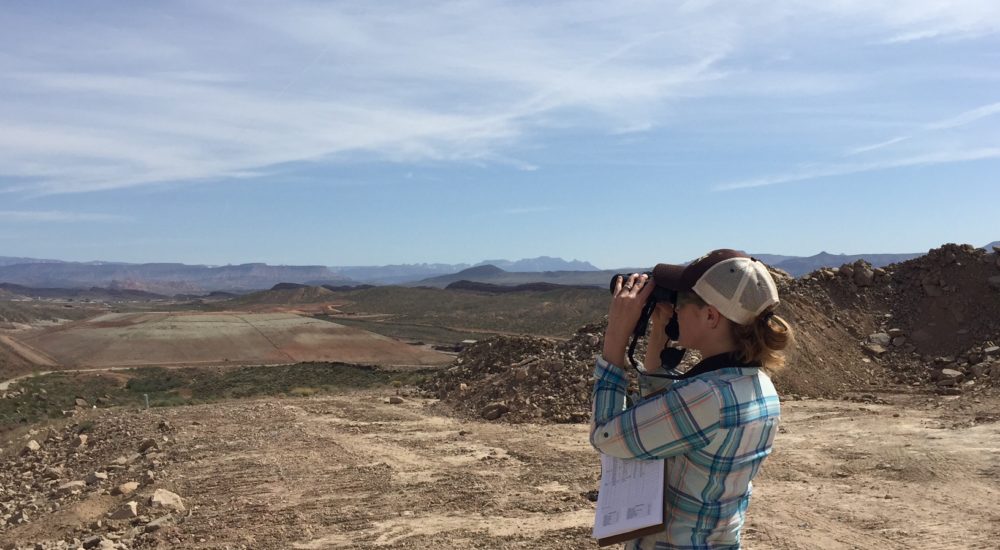JEF offers a comprehensive suite of environmental services to help streamline the environmental regulatory compliance requirements for each type of project. This suite of environmental services we provide to clients includes the following:
- National Environmental Policy Act (NEPA) compliance
JEF provides NEPA compliance for large and small projects throughout the Southwest and Intermountain West and has prepared Environmental Impact Statements (EISs), Environmental Assessments (EAs), and Categorical Exclusions to meet the requirements of each project’s lead agency. Constant communication and collaboration is required to streamline the NEPA process, and JEF has developed strong working relationships with federal agencies such as U.S. Army Corps of Engineers (USACE), Federal Emergency Management Agency (FEMA), Natural Resources Conservation Service (NRCS), National Park Service (NPS), Bureau of Land Management (BLM), Bureau of Reclamation (BOR), Bureau of Indian Affairs (BIA), U.S. Fish and Wildlife Service (USFWS), and the U.S. Forest Service. In order to provide sound environmental analyses for each NEPA project, JEF develops a comprehensive understanding of the affected environment with specific emphasis on the topics of most concern that are identified through public/stakeholders outreach and from the professional opinions of the lead or cooperating agencies and JEF’s scientists. JEF helps clients by recommending reasonable and scientifically sound mitigation measures designed to reduce impacts on natural resources and cultural values while increasing the benefits to health and human safety and supporting effective project implementation.
- Public Scoping and Involvement
The successful implementation of NEPA and planning projects includes stakeholder coordination and public outreach to collect valuable input from communities. Often this involves preparing fact sheets, developing brochures and newsletters for distribution to the public, building websites, maintaining hotlines, and leading and/or participating in public meetings. As part of the NEPA or planning process, JEF involves stakeholders from federal, state, county, and local agencies and private developers to build consensus and facilitate effective implementation of planning projects. JEF’s public involvement specialists remain flexible to the changing needs of each project and assess new issues or needs with a calm, confident approach.
- Clean Water Act (CWA) compliance
JEF provides CWA Section 404 and 401 compliance. Section 404 compliance involves preparation of Preliminary and Approved Jurisdictional Determinations (PJDs and AJDs) and sometimes Significant Nexus Analyses for submittal to the USACE. JEF prepares Pre-Construction Notifications for Nationwide permits (including ESA compliance documentation) and individual permit submittals. JEF also prepares CWA Section 401 Certifications, if required, and Storm Water Pollution Prevention Plans or Erosion Control Plans.
- Endangered Species Act (ESA) compliance
JEF prepares Biological Assessments for projects that require informal and formal consultation with USFWS. JEF also prepares various other types of ESA compliance documents including Biological Assessments for Conditional Letter of Map Revision projects. JEF’s Senior Biologist maintains permits for and conducts field surveys for federally listed threatened and endangered (T&E) species including Mexican spotted owl, yellow-billed cuckoo, southwestern willow flycatcher, and Chiricahua leopard frog. JEF’s Senior Biologist has also gained recognition for developing and implementing narrow-headed gartersnake monitoring during construction projects.
- Biological Services
JEF conducts general biological inventories, sensitive species protocol-level surveys, habitat analyses, pre-construction surveys/clearances, migratory bird nest searches, avian point-count surveys, mammal trapping, spotlight surveys, and wildlife relocations. JEF has extensive experience working with or surveying for the following sensitive species: Mexican spotted owl, yellow-billed cuckoo, southwestern willow flycatcher, golden eagle, peregrine falcon, western burrowing owl, northern goshawk, Chiricahua leopard frog, northern leopard frog, narrow-headed gartersnake, Sonoran desert tortoise, Wupatki (Arizona) pocketmouse, Fickeisen plains cactus, Brady pincushion cactus, and a variety of other sensitive species. JEF is also capable of designing survey protocols for projects like solar or wind farms that require customized survey protocols for the local wildlife. JEF prepares Biological Assessments, Biological Evaluations, ESA compliance reports, Wildlife and Botanical Specialist Reports, Monitoring and Mitigation Plans, Vegetation Inventory Reports, and Wildlife Hazard Assessments. JEF conducts large- and small-scale vegetation inventory field studies that involve gathering vegetation production, cover, and frequency data. JEF provides invasive species surveys/inventories to identify the presence and extent of infestation which is often complied into invasive species management plans for use during and after project implementation.
- Airport Wildlife Hazard Assessments
JEF’s Federal Aviation Administration (FAA) Qualified Airport Wildlife Biologist (QAWB) provides Wildlife Hazard Assessments (WHAs) and prepares Wildlife Hazard Management Plans (WHMPs) for airports throughout the Southwest and Intermountain West. As part of these studies, JEF designs and executes a suite of wildlife surveys for each airport to identify bird and mammal wildlife hazards on and in the vicinity of the airport for one full year. At the conclusion of the surveys, JEF prepares a comprehensive WHA report that contains a full analysis of the existing wildlife hazard conditions observed during the year-long study, wildlife hazard avoidance measures, wildlife hazing/control options, and recommendations to support safer aircraft operations. JEF also provides Part 139 annual wildlife hazard training for airport personnel.
- Environmental Site Assessments
JEF has a Certified Environmental Inspector (CEI) who is trained to identify Recognized Environmental Conditions (RECs) and prepares Phase I Environmental Site Assessments (ESAs) consistent with American Society for Testing and Materials guidelines.
